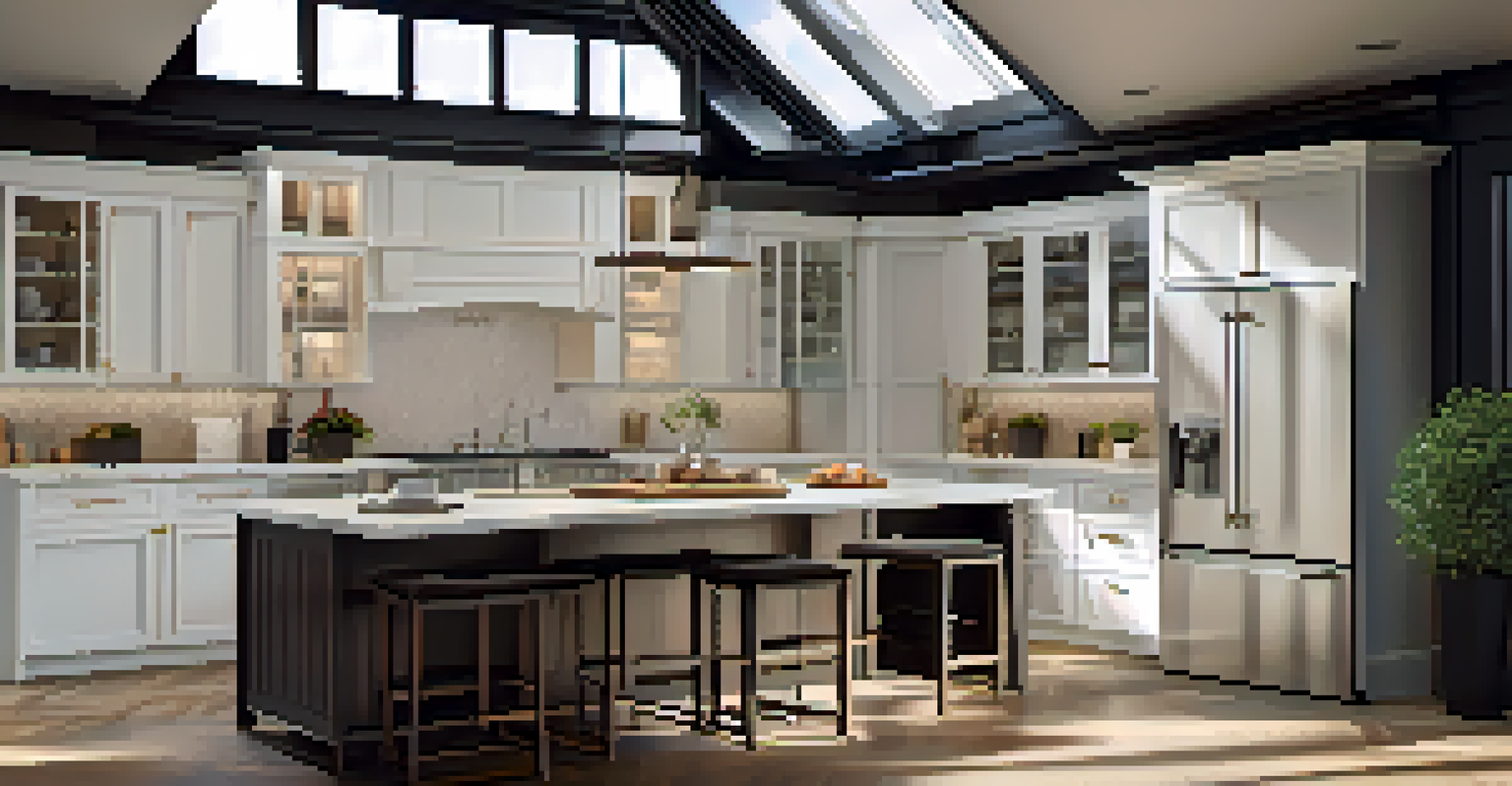Common Mistakes to Avoid During Home Renovation Projects

Neglecting a Detailed Plan Before Starting
One of the biggest mistakes homeowners make is diving into a renovation without a solid plan. A detailed outline not only helps you visualize the end result but also prevents costly surprises later on. Think of your renovation like planning a road trip; without a map, you might end up lost or driving in circles.
A goal without a plan is just a wish.
Taking the time to create a comprehensive plan allows you to set a realistic budget, timeline, and scope for your project. You’ll want to ask yourself questions like, 'What’s the purpose of this renovation?' or 'How will this affect my daily life?' This clarity will guide your decisions and keep your project on track.
Additionally, a detailed plan can help you identify potential problems before they arise. By anticipating challenges, you can devise strategies to tackle them, ensuring your renovation goes as smoothly as possible.
Underestimating Your Budget and Costs
Budgeting for a renovation can feel like trying to predict the weather; it's often unpredictable! Many homeowners underestimate costs, forgetting to account for materials, labor, permits, and unexpected repairs. This oversight can lead to financial strain and project delays.

To avoid this pitfall, it’s wise to set a budget that includes a buffer for unforeseen expenses—typically around 10-20% of your total budget. This cushion can save you from the stress of scrambling for funds when unexpected costs arise, such as discovering outdated wiring or plumbing during a kitchen remodel.
Plan Your Renovation Thoroughly
A detailed plan helps visualize the project and prevents costly surprises.
Additionally, researching quotes from contractors and suppliers can provide a clearer picture of potential costs. By being informed and realistic about your budget, you’ll set yourself up for a smoother renovation experience.
Ignoring the Importance of Hiring Professionals
While DIY projects can be a fun way to save money, some renovations require the expertise of professionals. Ignoring this can lead to shoddy work or even safety hazards. For instance, electrical or plumbing issues are best left to licensed experts who can ensure everything is up to code.
By failing to prepare, you are preparing to fail.
Hiring the right professionals can actually save you time and money in the long run. Think of it this way: would you attempt open-heart surgery on yourself? Probably not! Just as you would trust a doctor with your health, trust skilled tradespeople with your home.
Always do your due diligence when hiring. Check reviews, ask for references, and get multiple quotes to ensure you’re making an informed decision. This investment in quality workmanship will pay off with a beautifully completed project.
Overlooking Necessary Permits and Regulations
Navigating the world of building permits and regulations can seem daunting, but overlooking them can lead to major headaches. Many homeowners assume that small renovations don’t require permits, but this isn’t always the case. Ignoring regulations can result in fines or even having to redo work that’s not up to code.
Before starting your project, it’s essential to research what permits are needed in your area. Local building departments can provide guidance, and there are plenty of online resources available. Getting the right permits ensures your renovation is legal and safe.
Budget for Unexpected Costs
Setting a realistic budget with a buffer for unforeseen expenses can save you from financial strain.
In addition, following local regulations can add value to your home. Future buyers will appreciate knowing that all work has been done legally and professionally. So, take the time to do your homework—your future self will thank you!
Rushing the Decision-Making Process
In the excitement of a home renovation, it’s easy to rush decisions, but this can lead to regrets down the line. Whether it’s choosing paint colors or selecting fixtures, taking the time to weigh your options is crucial. Remember, a rushed decision can impact the overall aesthetic and functionality of your space.
To avoid this mistake, create a timeline for decision-making that allows you to consider various options thoughtfully. You might want to gather samples, visit showrooms, or even consult with a designer to ensure you’re making informed choices. This process can be enjoyable and lead to a more cohesive design.
Moreover, involving family members in the decision-making process can ensure everyone is on the same page. After all, this is a shared space, and incorporating everyone’s preferences can enhance the overall satisfaction with the finished project.
Not Considering the Flow and Functionality of Space
When planning a renovation, it’s easy to focus solely on aesthetics, but functionality is just as important. A beautiful kitchen that lacks adequate storage or flow can quickly become frustrating. Consider how you and your family use the space daily to prioritize practical design.
For instance, if you love to cook, ensure your kitchen layout facilitates movement and access to essentials. Think of your space like a well-orchestrated dance; each element needs to work in harmony. Sketching out traffic patterns can help visualize this flow.
Hire Professionals When Needed
Trusting skilled tradespeople ensures quality workmanship and safety during renovations.
Additionally, consider the placement of furniture and fixtures in relation to each other. A well-thought-out layout can enhance your daily experience, making your home not just beautiful, but also functional.
Disregarding Future Needs and Trends
While it’s tempting to focus on current trends during a renovation, it’s vital to consider your future needs. Life changes, whether it’s growing your family or working from home, may necessitate different requirements from your space. Designing with foresight can save you the hassle of needing another renovation sooner than expected.
For example, if you plan to have children, consider incorporating flexible spaces that can adapt over time. A spare room could serve as a nursery now and transform into a home office later. This versatility can maximize your investment.

Staying aware of timeless design elements over fleeting trends can also pay off. Classic styles tend to age better and can make your home more appealing to future buyers. Ultimately, thinking ahead will not only enhance your living experience but also protect your investment.